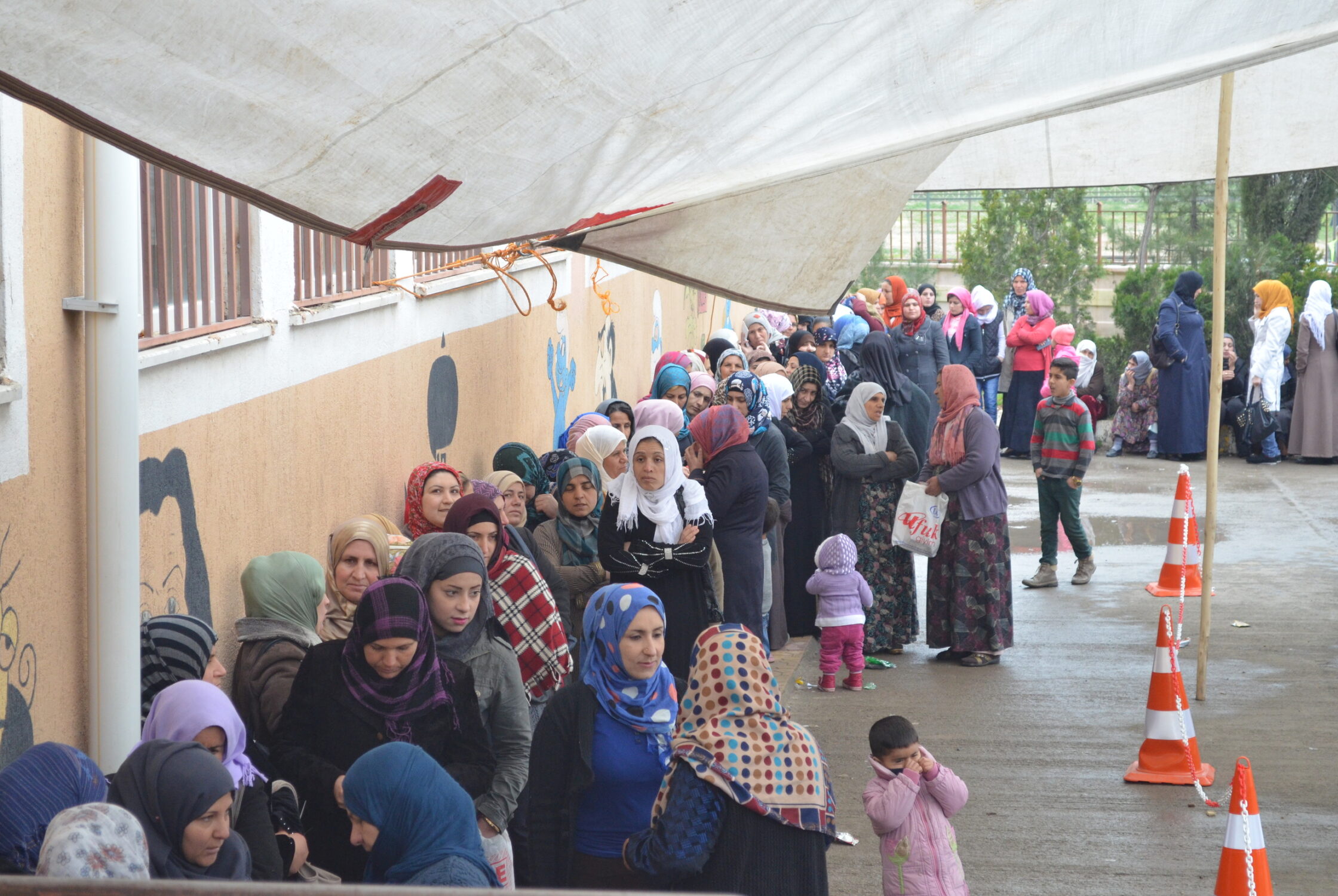Next Steps for Syrian Refugees in Turkey

The horrors being experienced now in Aleppo are truly shocking. Russian airstrikes are killing and displacing vulnerable civilians. More than 70,000 Syrians have fled the latest attacks. There are estimates that these new attacks could create over 600,000 newly displaced. More people than ever in Syria, up to five million by some estimates, are living under siege or in hard-to-reach areas.
There is a new rush of movement to the Turkish border but we have seen this kind of movement before. People who, it cannot be said enough, are fleeing unspeakable violence that most of us cannot imagine. Humanitarian access inside Syria remains extremely limited, and the amount of humanitarian aid provided is simply not meeting the monumental needs.
It doesn’t take much to be discouraged when doing advocacy around the Syrian refugee crisis. The humanitarian disaster only continues to grow. Despite the recent donor conference – which included $11 billion pledged – donor fatigue is real and humanitarian appeals continue underfunded. The United States, a consistent leader in humanitarian support, continues to push for new donors at the table. Political negotiations are ongoing as attempts are being made to ease the suffering inside Syria and within the region.
Refugees International has been reporting on this population from the very start of the crisis. My colleague, Daryl Grisgraber, and I will be returning to the region this week to look at the Syrian refugee situation and better understand new and forward-leaning initiatives to support Syrian refugees. And it’s important to note that there are potential new opportunities, particularly around the issue of work permit access and livelihood support.
After two years of debate about whether Syrian refugees in Turkey should be eligible for work permits, the Turkish government has stated that some Syrians will be offered permission to work.
Turkey now hosts the largest population of Syrian refugees with 2.5 million registered. After two years of debate about whether Syrian refugees in Turkey should be eligible for work permits, the Turkish government has stated that some Syrians will be offered permission to work. The details are significant: Syrian refugees must be registered, must have been in the country for at least six months, and must apply for the permit in the province where they first registered, among other conditions.
This is an important step that Turkey has made, but the implementation, as is usually the case anywhere, is the key. How long will the process of applying for and issuing work permits take? Based on geographic distribution, how many Syrians are expected to apply?
Additionally, while the European Union’s pledge of $3 billion in financial assistance to Turkey is notable, we look forward to learning more about how these funds will better assist the vulnerable refugee population.
Will new initiatives such as work permit access in Turkey make lives better for the Syrians currently in Turkey? How can the international community do more and do better?
As always, we will hear the stories from the refugees themselves: those who recently arrived, those who want to leave, and what they see as the biggest challenges to their own survival.
As we depart, I think back to RI’s mission to Lebanon in August 2014, where livelihood opportunities were scarce and desperate measures like taking children out of school and putting them to work were apparent. We are now entering the sixth year of the Syrian crisis. Will new initiatives such as work permit access in Turkey make lives better for the Syrians currently in Turkey? How can the international community do more and do better? We look forward to finding out.
Top photo: Syrian refugees register with the Turkish government in Sanliurfa, Turkey.